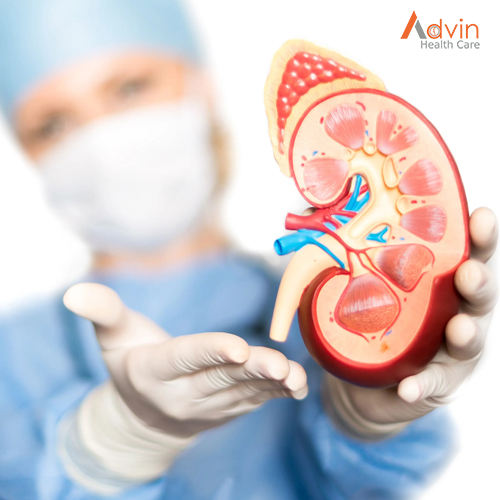Kidney Transplant – a successful answer for patients experiencing end stage renal sickness. The rates of Kidney failure are expanding alarmingly with factors like hypertension and diabetes adding to it. When the kidney begins disintegrating, it becomes Chronic Kidney Disease.
With time, working of kidney progressively deteriorates till it can’t support body works; this is End Stage Renal Disease. At this stage, dialysis becomes compulsory for proper working of the body. What are the choices accessible for a patient with End Stage Renal Disease? Haemodialysis: As a part of Haemodialysis, a patient goes through least of 2-3 dialysis each week in the medical clinic.
To keep up with such a patient on dialysis, a vascular access is expected through which arterial blood is pumped into the dialysis machine. After the cleaning procedure, blood is returned back into the body.
Continuous Ambulatory Peritoneal Dialysis: This is a type of peritoneal dialysis which can be done by the patient himself at home. A tube is inserted into the abdomen precisely, through which dialysing liquid is filled. The patient needs to make 2-3 such exchanges day to day for typical working of the body. This is relatively expensive and may introduce infection if not done carefully.
Kidney Transplantation: This is the best technique that is also cost effective, where the patient can return to an ordinary life. A healthy kidney from donor is transplanted into patient to support ordinary renal function. Patient is kept up on dialysis till Kidney transplantation is finished. Legally, family members who can give the kidney are the patient’s father, mother, brother, sister, grandparents and spouse. Unrelated transplantation is possible only in some cases where there is no suitable family donor.
What are the base necessities for a Kidney Donor? Donor should be from matching blood group or O+ve (universal donor) as in blood transfusion. Such transplantation is called ABO compatible transplantation. Presently ABO inconsistent renal transfer is likewise conceivable with good results. Donor’s kidneys should be working well so his/her renal function can be supported regularly with a single kidney after donation. Donor likewise goes through HLA typing which decides the number of antigens that are matching. Minimum mismatch means good and long-term implant survival. What is the interaction for Kidney Transplant? After all conventions are finished, the donor and patient are presented to an independent authorisation committee that has been approved by the govt. for an approval.
The donor kidney is first recovered through an open a medical procedure or laparoscopic medical procedure. In the recipient his/her native kidneys are left accordingly and the new kidney is transplanted in the lower abdomen. During the surgery, the artery and vein of the giver kidney (renal corridor) are joined to the artery and vein of the patient, respectively. This re-establishes blood circulation in the transplanted kidney, thus restoring functioning of the kidney. The Ureter of the donor kidney is joined to the urinary bladder, thus finishing a medical procedure.
Post- surgery, what should the patient watch out for? In spite of being a relative’s kidney, the body’s immune system doesn’t accept any foreign organ and tries to reject it, making the kidney non- functional. To keep away from this, the immune system is suppressed by immuno-suppressive drugs, which should be taken forever. Post-surgery, patients can continue ordinary life after kidney transplantation. Assuming antigen match is good, the kidney can work for over 30 years.
Nephrology Products
We, Advin Health Care, provide international quality standard products for Nephrology Products.

